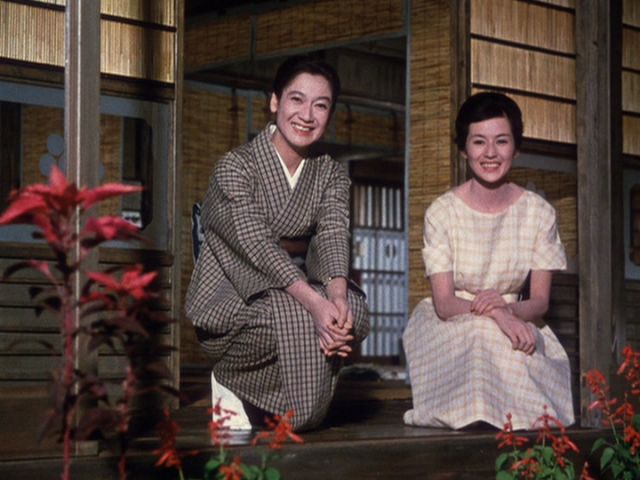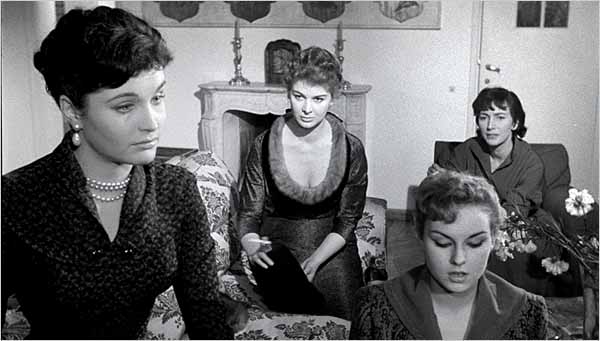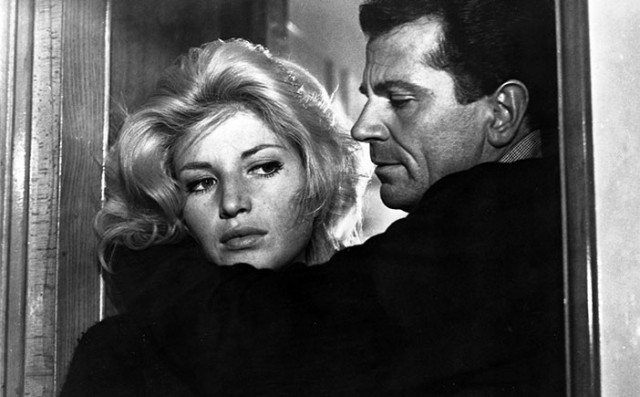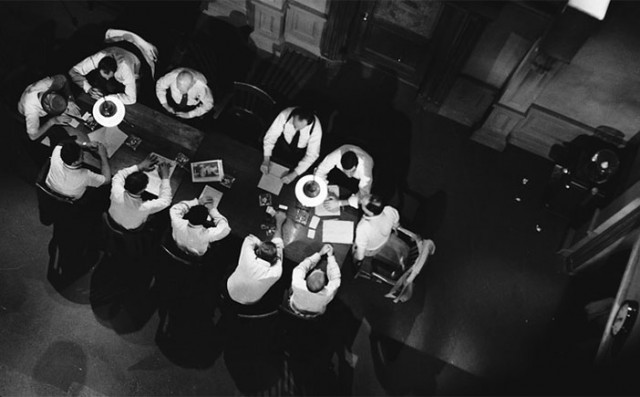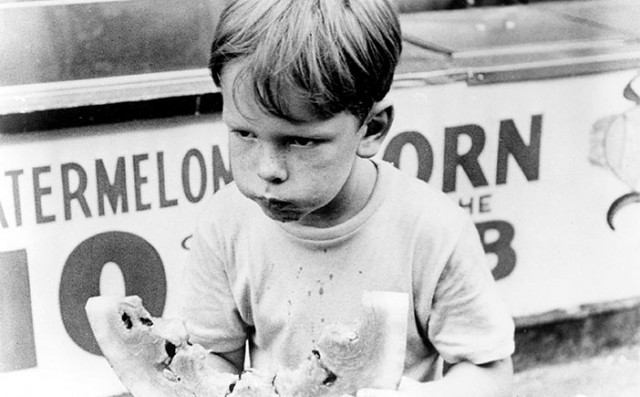SOLARIS (Andrei Tarkovsky, 1972)
Film Forum
209 West Houston St.
Monday, August 12, 1:00, 4:10, 7:15
Series runs through September 5
212-727-8110
www.filmforum.org
 In Andrei Tarkovsky’s Solaris, the Russian 2001: A Space Odyssey, Natalya Bondarchuk and Donatus Banionis star as a different kind of couple caught up in something very strange that is going on in outer space, unexplainable to both the characters in the film and the people in the audience. Banionis plays Dr. Kris Kelvin, a psychologist who is sent to the Solaris space station to decide whether to put an end to the solaristics project that Burton (Vladislav Dvorzhetsky) complicated twenty years before. What he discovers is one death, two possibly insane men, and his supposedly dead wife (Bondarchuk). Ambiguity reigns supreme in this gorgeously shot (in color and black and white by cinematographer Vadim Yusov) and scored (by Eduard Artemyev) film that, while technically science fiction, is really about the human conscience, another gem from master Russian director Tarkovsky (Ivan’s Childhood, Andrei Rublev, Nostalghia). See it whether or not you checked out Steven Soderbergh’s underrated remake with George Clooney and Natascha McElhone.
In Andrei Tarkovsky’s Solaris, the Russian 2001: A Space Odyssey, Natalya Bondarchuk and Donatus Banionis star as a different kind of couple caught up in something very strange that is going on in outer space, unexplainable to both the characters in the film and the people in the audience. Banionis plays Dr. Kris Kelvin, a psychologist who is sent to the Solaris space station to decide whether to put an end to the solaristics project that Burton (Vladislav Dvorzhetsky) complicated twenty years before. What he discovers is one death, two possibly insane men, and his supposedly dead wife (Bondarchuk). Ambiguity reigns supreme in this gorgeously shot (in color and black and white by cinematographer Vadim Yusov) and scored (by Eduard Artemyev) film that, while technically science fiction, is really about the human conscience, another gem from master Russian director Tarkovsky (Ivan’s Childhood, Andrei Rublev, Nostalghia). See it whether or not you checked out Steven Soderbergh’s underrated remake with George Clooney and Natascha McElhone.

Stanley Kubrick’s 2001: A SPACE ODYSSEY helps cast a light on far-out sci-fi summer series at Film Forum
Based on Stanislaw Lem’s novel, Solaris is screening August 12 as part of Film Forum’s “Son of Summer Sci-Fi, Fantasy & Horror” series, which returns to the indie house for the first time in seventeen years. The festival continues through September 5 with such great double features as Jason and the Argonauts and The 7th Voyage of Sinbad, The Thing from Another World and It! The Terror from Beyond Space, Psycho and Peeping Tom, The Fearless Vampire Killers and The Abominable Dr. Phibes, the 1958 and 1978 versions of Invasion of the Body Snatchers, the 1958 and 1986 versions of The Fly, and other creepy classics in addition to 2001: A Space Odyssey.
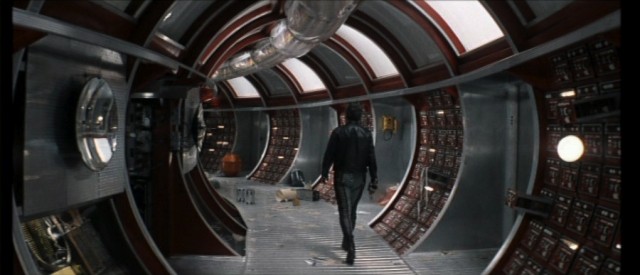
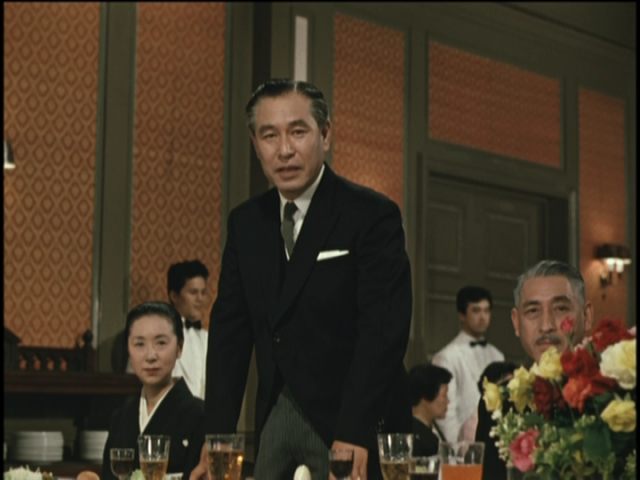
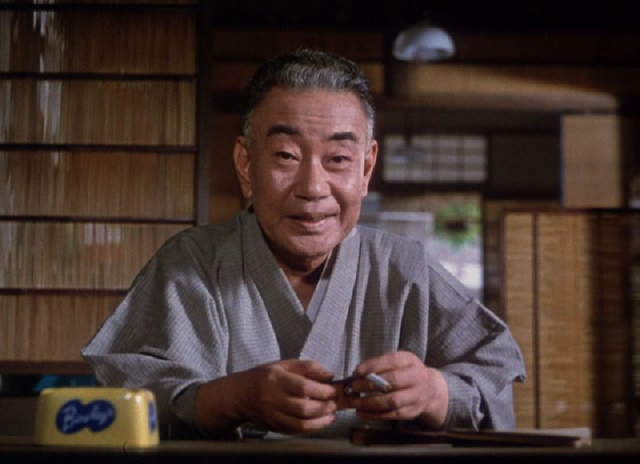
 Yasujirō Ozu’s next-to-last film, 1961’s The End of Summer, is a poignant examination of growing old in a changing Japan; Ozu would make only one more film, 1962’s An Autumn Afternoon, before passing away on his sixtieth birthday in December 1963. Ganjirō Nakamura is absolutely endearing as Manbei Kohayagawa, the family patriarch who heads a small sake brewery. The aging grandfather has been mysteriously disappearing for periods of time, secretly visiting his old girlfriend, Sasaki (Chieko Naniwa), and her daughter, Yuriko (Reiko Dan), who might or might not be his. In the meantime, Manbei’s brother-in-law, Kitagawa (Daisuke Katō), is trying to set up Manbei’s widowed daughter-in-law, Akiko (Setsuko Hara), with businessman Isomura Eiichirou (Hisaya Morishige), while also attempting to find a proper suitor for Manbei’s youngest daughter, Noriko (Yoko Tsukasa), a typist with strong feelings for a coworker who has moved to Sapporo. Manbei’s other daughter, Fumiko (Michiyo Aratama), is married to Hisao (Keiju Kobayashi), who works at the brewery and is concerned about Manbei’s suddenly unpredictable behavior. When Manbei suffers a heart attack, everyone is forced to look at their own lives, both personal and professional, as the single women consider their suitors and the men contemplate the future of the business, which might involve selling out to a larger company. “The Kohayagawa family is complicated indeed,” Hisao’s colleague tells him when trying to figure out who’s who, an inside joke about the complex relationships developed by Ozu and longtime cowriter Kôgo Noda in the film as well as in the casting.
Yasujirō Ozu’s next-to-last film, 1961’s The End of Summer, is a poignant examination of growing old in a changing Japan; Ozu would make only one more film, 1962’s An Autumn Afternoon, before passing away on his sixtieth birthday in December 1963. Ganjirō Nakamura is absolutely endearing as Manbei Kohayagawa, the family patriarch who heads a small sake brewery. The aging grandfather has been mysteriously disappearing for periods of time, secretly visiting his old girlfriend, Sasaki (Chieko Naniwa), and her daughter, Yuriko (Reiko Dan), who might or might not be his. In the meantime, Manbei’s brother-in-law, Kitagawa (Daisuke Katō), is trying to set up Manbei’s widowed daughter-in-law, Akiko (Setsuko Hara), with businessman Isomura Eiichirou (Hisaya Morishige), while also attempting to find a proper suitor for Manbei’s youngest daughter, Noriko (Yoko Tsukasa), a typist with strong feelings for a coworker who has moved to Sapporo. Manbei’s other daughter, Fumiko (Michiyo Aratama), is married to Hisao (Keiju Kobayashi), who works at the brewery and is concerned about Manbei’s suddenly unpredictable behavior. When Manbei suffers a heart attack, everyone is forced to look at their own lives, both personal and professional, as the single women consider their suitors and the men contemplate the future of the business, which might involve selling out to a larger company. “The Kohayagawa family is complicated indeed,” Hisao’s colleague tells him when trying to figure out who’s who, an inside joke about the complex relationships developed by Ozu and longtime cowriter Kôgo Noda in the film as well as in the casting.